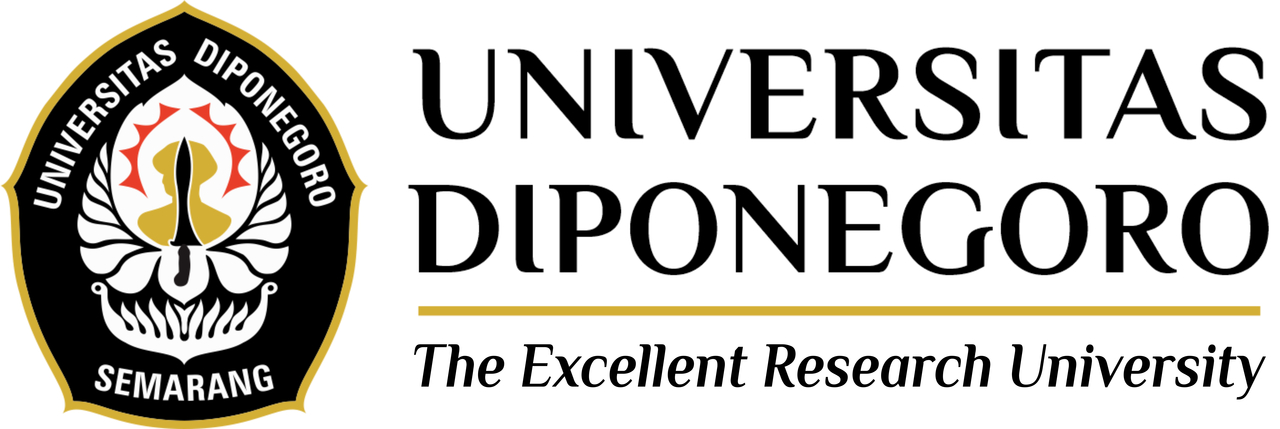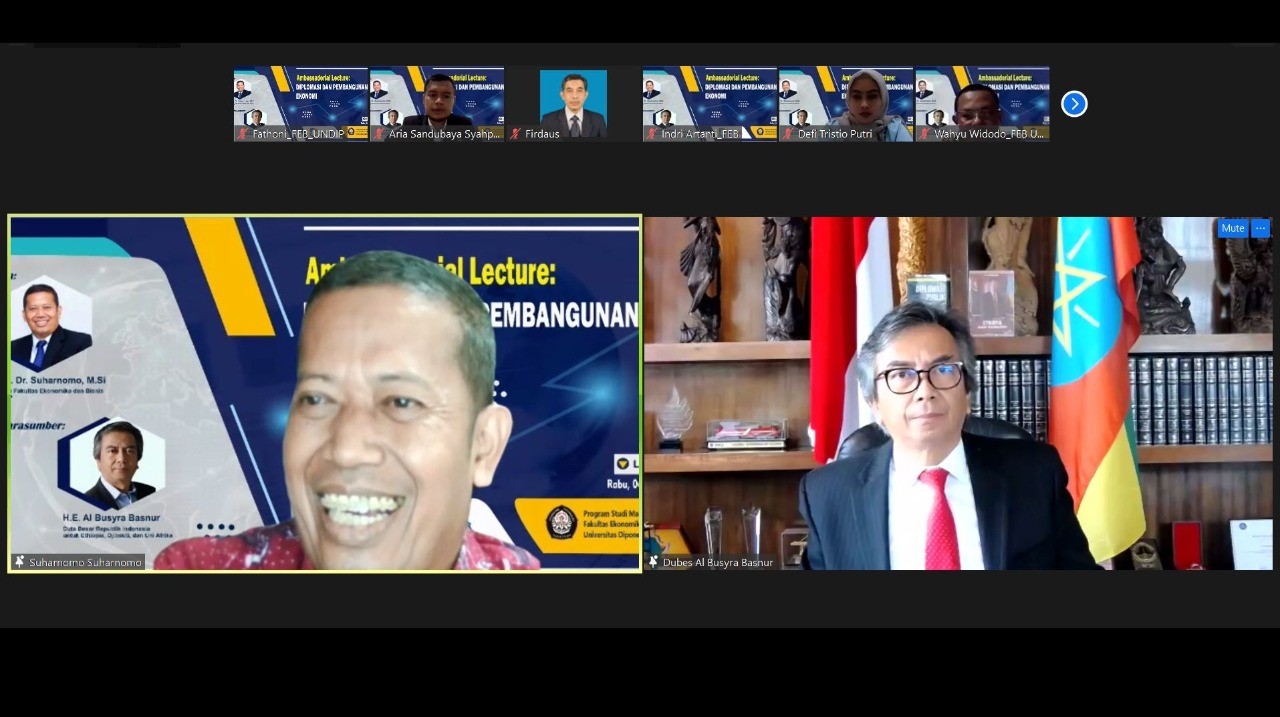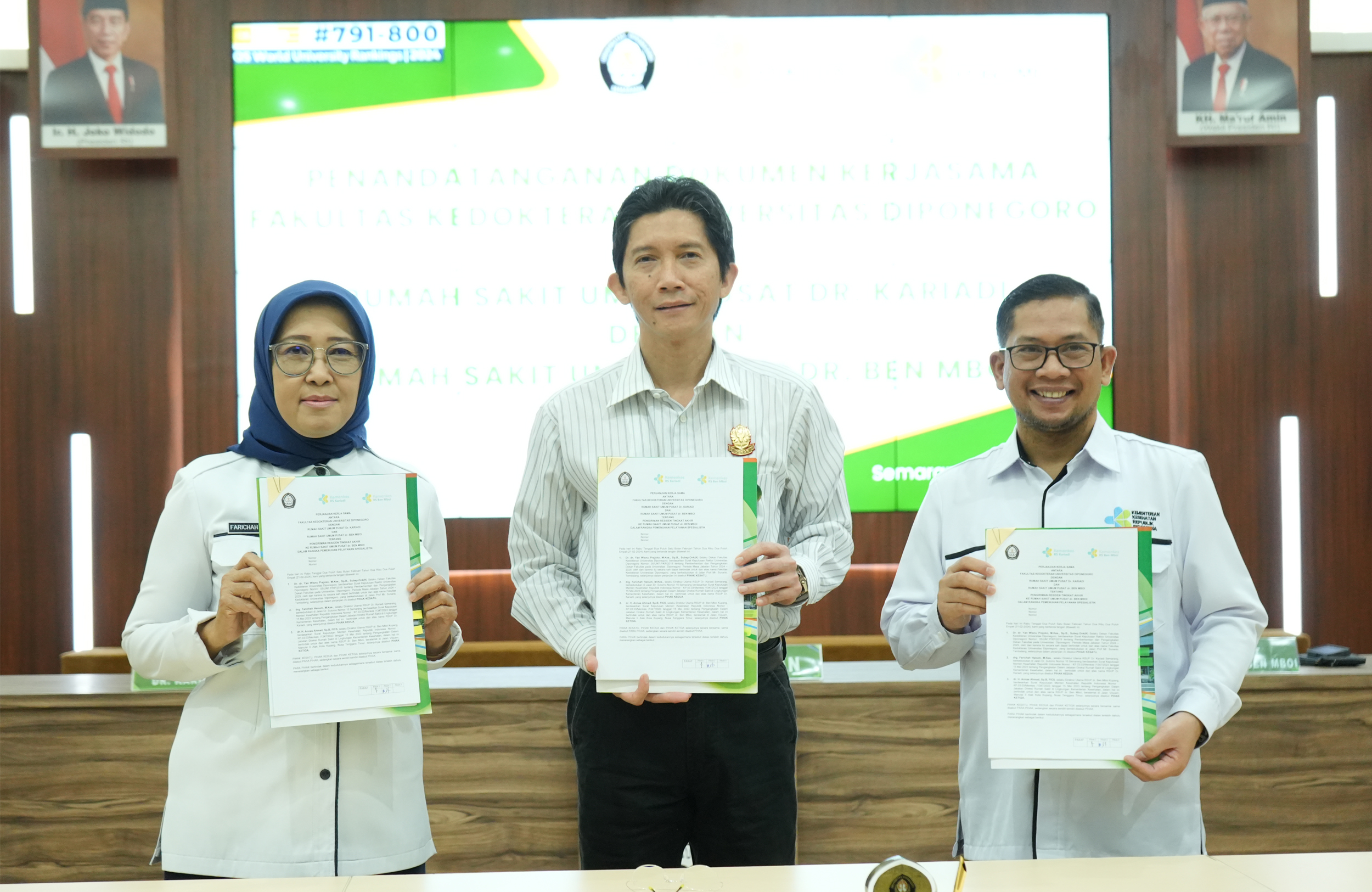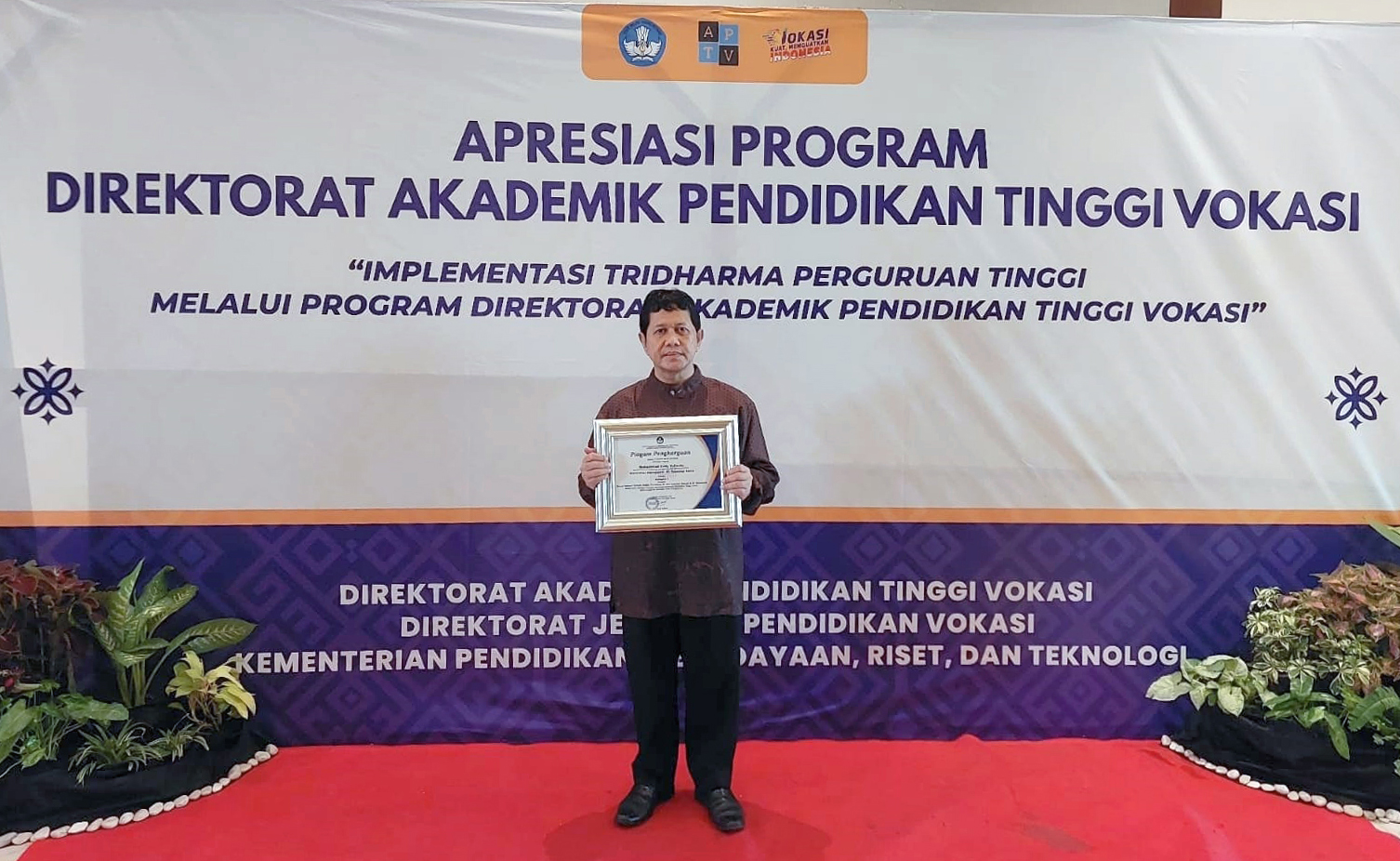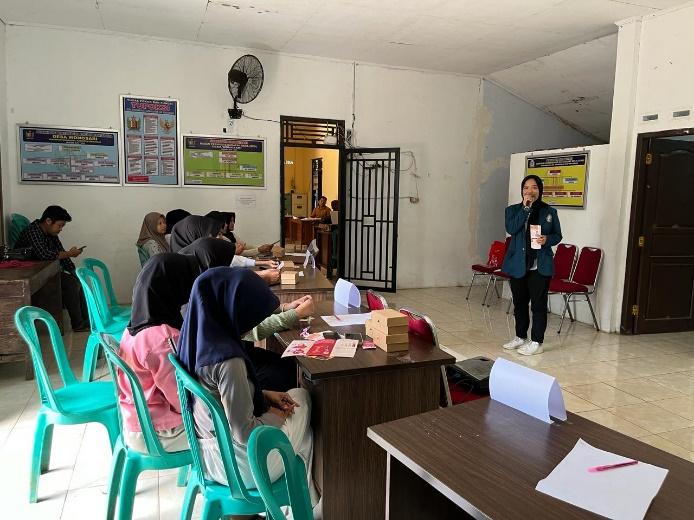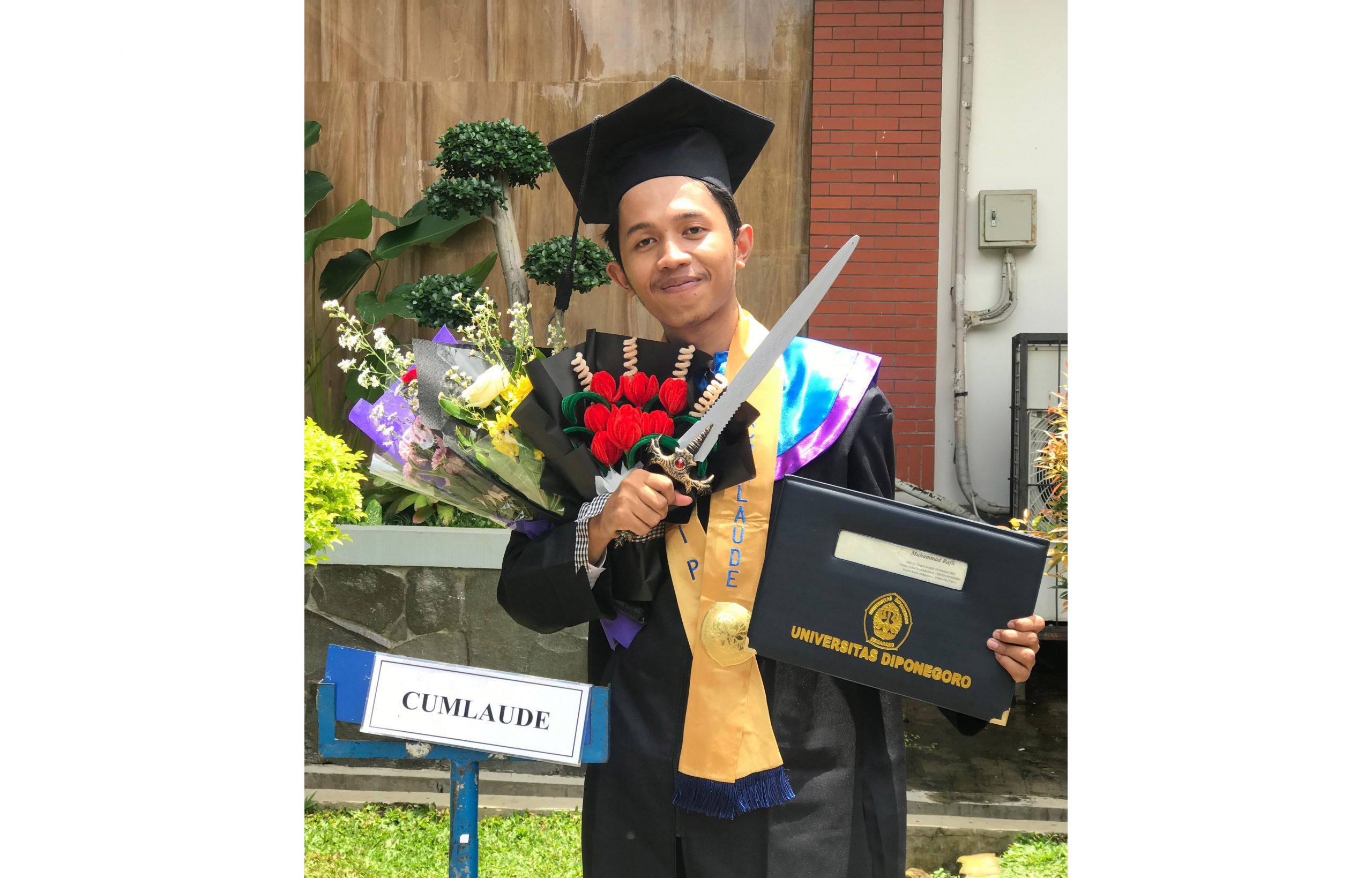Semarang (06/10) – Currently, the global economy is moving very fast and dynamically. In the last two decades, several important events have been recorded that have changed the landscape of the world economy. Starting from the global financial crisis in 2008, the presence of the Fourth Industrial Revolution, the trade war between the United States and China, to the Covid-19 pandemic that has not yet ended.
In the changing situation of the complex global order, the power of diplomacy plays a central role. In response to this, Economics Postgraduate Study Program held an Ambassadorial Lecture with the theme “Diplomacy and Economic Development” by presenting the Ambassador of the Republic of Indonesia to Ethiopia, Djibouti and the African Union, H.E. Al Busyra Basnur.
In his remarks, the Dean of Faculty of Economics and Business Undip, Prof. Dr. Suharnomo, M.Si. revealed that global economic turmoil is a necessity that cannot be avoided by every country with an open economic system.
“Changes in the landscape have had a fundamental influence on the economic development of each country,” said the Dean of Faculty of Economics and Business Undip.
Furthermore, he added that a modern and open economy is characterized by interdependence between countries in the flow of trade in goods, investment/capital and factors of production. For these reasons, diplomatic skills are needed to maintain external sources of economic growth.
“Economic diplomacy is the key to the success of every country in facing the global economic order which frequently changes,” added Prof. Suharnomo.
In line with the Dean of Faculty of Economics and Business Undip, the Indonesian Ambassador to Ethiopia, Djibouti and the African Union, H.E. Al Busyra Basnur in his presentation underlined the importance of diplomacy for countries with open economic systems, both public diplomacy and economic diplomacy.
“Economic diplomacy is currently the result of all international diplomacy carried out by each country,” he explained.
In fact, one of the main mandates given by the President when inaugurating the diplomat was to open trade and bring investment missions to Indonesia, added the figure who is often called Mr. Al.
He explained that Indonesia has been very active in carrying out economic diplomacy around the world to maintain external sources of growth, especially international trade.
However, its penetration has not been maximized in all areas. Indonesia is still very dependent on Indonesia’s limited trading partners and destinations, concentrated in the United States, China, Japan and ASEAN countries.
“African countries, the Middle East and South America have not been reached out optimally,” he said.
Furthermore, Mr. Al gave an example of Ethiopia’s success in international diplomacy. Even though it is still classified as a poor country, but it is recorded to have the fastest development among other African countries. GDP per capita in 2020 reached 936 USD, after previously always being a country that was always synonymous with hunger, drought and political crises until the 1990s.
Ethiopia’s success is inseparable from the country’s openness to accept foreign investment. Besides employment, foreign investment also has a broad spillover impact on the economy, including technology transfer. Ethiopia is developing rapidly because it is supported by massive infrastructure development.
There are concerns about the role of foreigners, but so far it has made a significant contribution to the transformation of the domestic economy. This rapid transformation is also supported by the role of the diaspora which provides full support to the Ethiopian government.
“Diaspora provides a way for potential Ethiopians to study in more developed countries,” concluded Mr. Al.
Translated by: Titis (Public Relations)
